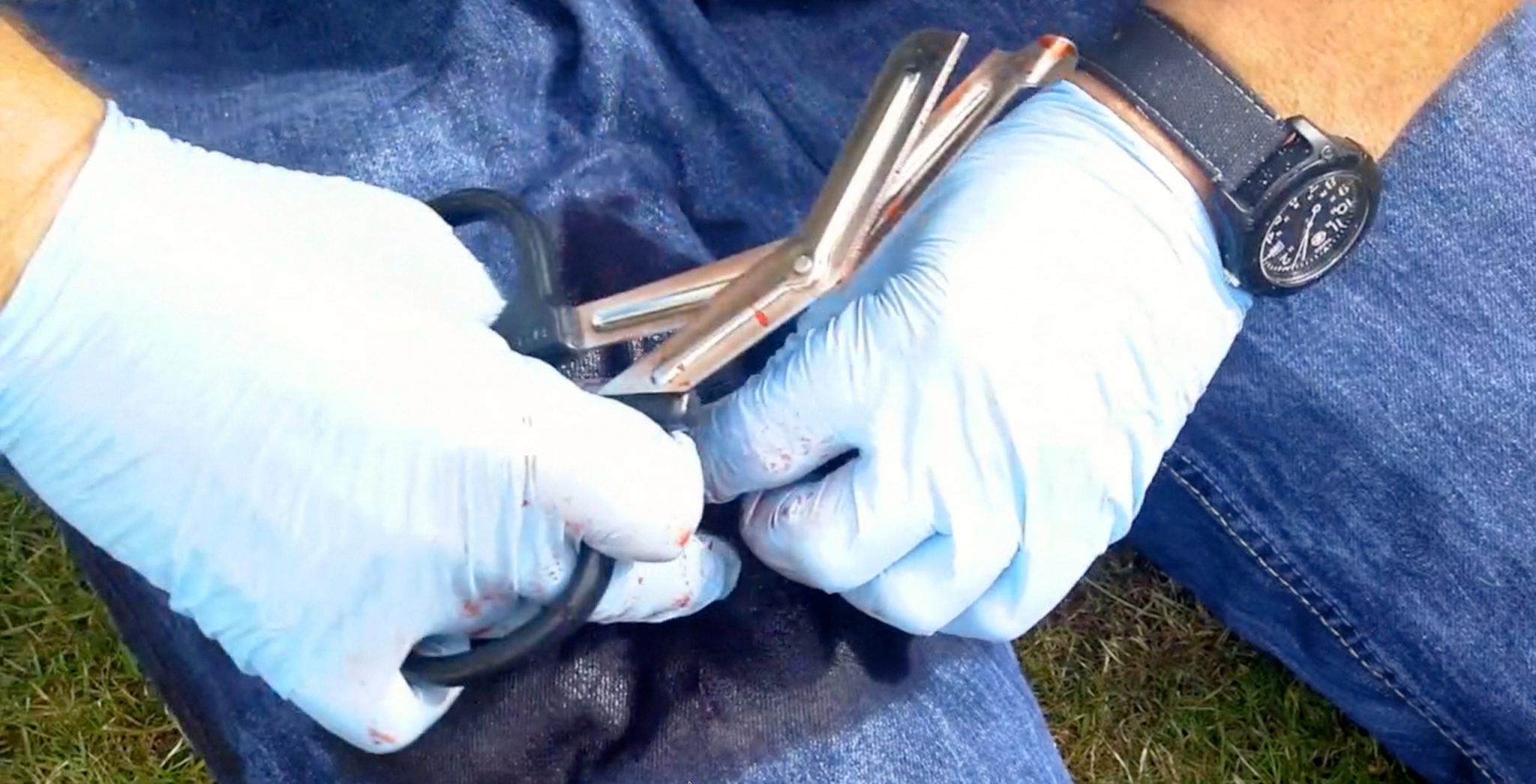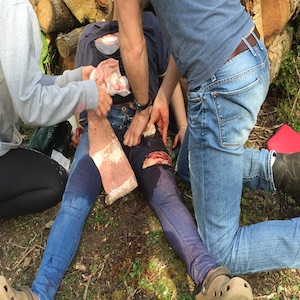First Person on Scene training is popular and has been running for years, but the changes in 2017 to a level 4 qualification seem to have caused some confusion.
FPOS [level 4] (was First Person On Scene Intermediate) training is typically a five day course aimed at those likely to be providing the initial care to a person injured or taken ill. The FPOS course is most relevant for people who are likely to be unable to call for professional medical back up, or that help will arrive in more than 20 minutes.
This is now a Level 4 qualification after the changes to the course duration, content [only small changes] and the assessment requirements.
Next FPOS “Open” course dates in Essex:
20th-24th April 2020 [inclusive]
Call 0800 242 5210 to book.
Originally designed for community first responders working with the NHS, this course has become increasingly popular as an alternative to the traditional workplace first aid courses.
The course is highly practical, focusing on building a confident approach to casualty management through scenario work involving casualty simulation.

The FPOS course covers:
The pre-hospital environment
- role of the FPOS
- scene safety
- minimising the risk of infection
- triage
Patient assessment
- communication with patients
- examination and assessment
- safe moving and handling
Respiration and Airway management
- recognition of respiratory problems
- common breathing difficulties
- basic airway management
- use of suction
- removal of crash helmets
- use of airway adjuncts
- oxygen supplementation
- ventilation support
- bag/valve/mask
Basic Life Support
- perform basic life support [all age groups including child bls and infant bls]
Defibrillation
- automated external defibrillation
- normal and abnormal heart rhythms
Circulation and Shock
- recognition and care of bleeding
- shock [to include faints]
Medical related emergencies
Recognition and initial care of
- heart attack/angina
- diabetes
- stroke
- epilepsy
- unconscious patient
- asthma/anaphylaxis
- assisting the paramedic/medical care provider
Trauma Related emergencies.
- recognition and initial care of injuries to bones, joints, tendons and ligaments
- recognition and initial care of burns and scalds
- recognition and initial care of other trauma related injuries
- skeletal stabilisation
With this amount of content to be covered, you will appreciate that the training days are long and full on. We also require delegates to have previously completed some form of first aid training and to have completed some pre-reading of the course manual prior to the course.
Having said that the course includes the necessary lessons to build knowledge because it has a high percentage of practical sessions, skills stations and most importantly casualty scenario work. This scenario work can be both physically and mentally challenging, but very rewarding. Contact our training office via info@lazarustraining.co.uk or on 0800 242 5210 to discuss any specific needs/questions.

